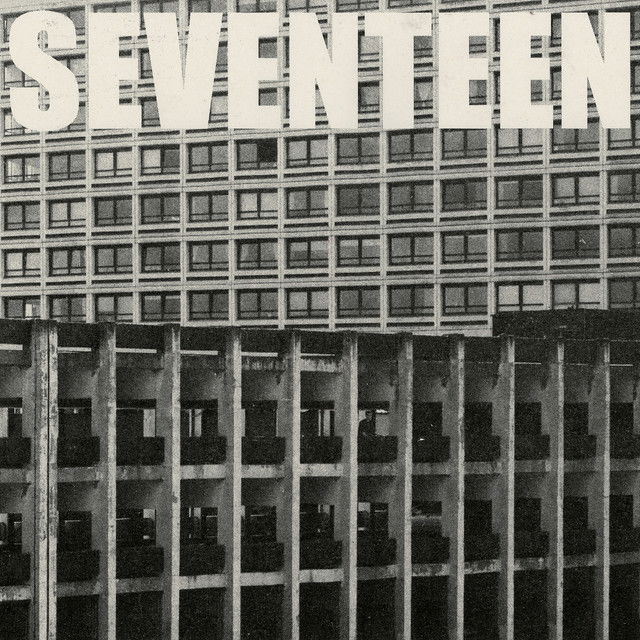The Best Song of the Last 10 Years

It’s a bold claim. Ten years span countless albums, singles, and sounds — from global chart-toppers to quiet masterpieces that shaped entire genres. So what makes one song rise above the rest? What earns a track the title of the best song of a decade?
For me, that song is ‘Seventeen Going Under’ — the breakout single from the 2021 album of the same name by Geordie singer-songwriter Sam Fender.
From the very first note, it’s clear that this is not just another indie rock anthem. It’s something more urgent, more real. It’s a song that hits like a wave, personal yet universal, tender yet furious, poetic yet brutally honest. And it’s that rare balance that sets it apart.
Released during a time when the UK was emerging from a pandemic and grappling with a decade of political upheaval, ‘Seventeen Going Under’ struck a nerve. It didn’t just chart well — it cut through. It reached the Top Ten in the Official UK Singles Chart and received massive airplay across mainstream radio stations, an impressive feat for a song rooted so deeply in regional identity and social commentary.
The song’s impact was amplified by social media, especially TikTok, where users embraced it not just for its sound, but for its soul. Countless videos featured people sharing personal stories, using the song as a soundtrack to confessions, reflections, and moments of vulnerability. It became an anthem for the unheard, a rallying cry for those struggling beneath the weight of generational trauma and systemic inequality.

At its core, ‘Seventeen Going Under’ is a coming-of-age story. But not the kind romanticised in films. This is the gritty, real version. Fender reflects on his youth in North Shields, a town steeped in working-class history, where industry has been replaced by uncertainty and opportunity feels like a luxury.
The lyrics don’t flinch. They dive headfirst into the rawness of Fender’s teenage years — the helplessness of watching his mother’s health decline, the frustration of bureaucratic cruelty, the disillusionment with politics, the simmering anger that comes from being dismissed and misunderstood. Lines like “I was far too scared to hit him, but I would hit him in a heartbeat now” reveal a storm of suppressed rage, at abusers, at systems, at himself.
And yet, there’s beauty here too. Fender captures the emotional complexity of youth — the vulnerability, the loyalty to friends and family, the hunger to be seen and heard, the slow erosion of innocence. The track is an elegy for that lost boy, but also a celebration of survival.
Musically, ‘Seventeen Going Under’ blends Springsteen-esque grandeur with British indie grit. There’s a driving energy to the guitar work, a cinematic quality to the arrangement, and a sense of urgency that builds with every verse. Fender’s vocals are both commanding and cracked with emotion, lending weight to every word.
The song’s structure mirrors its message: it starts softly, introspectively, but soon surges forward — like a wave of realisation, grief, and resilience. It’s not just about what’s been lost, but about what must be confronted.
Critics have hailed the song as one of the defining tracks of the 2020s so far. It won NME’s Best Song in the World award, was shortlisted for Ivor Novello Awards for its songwriting, and earned a spot in countless year-end lists. But more importantly, it sparked conversations. About class. About masculinity. About mental health. About what it means to grow up in modern Britain.
In an era when working-class communities have been marginalised by both policy and media, Sam Fender’s success is more than a musical triumph, it’s a political and cultural one. He doesn’t just speak for himself. He speaks for the kids who are told to be quiet. For the families stretched to the brink. For the towns the government forgot.
He does it not with bitterness, but with clarity and compassion. He stands in the long tradition of protest songwriters, from Bob Dylan to Billy Bragg, only his voice is unmistakably his own, rooted in the North East, shaped by his time, yet resonant across generations.
Ultimately, ‘Seventeen Going Under’ is more than just the best song of the last ten years. It’s a time capsule, a document of struggle, of youth, of survival. It's an anthem for anyone who’s ever felt powerless, for anyone who’s had to grow up too quickly, for anyone who’s carried burdens they didn’t ask for.
In the end, the reason it’s the best isn’t just because it sounds incredible. It’s because it matters. And in a world overflowing with noise, a song that truly matters is a rare and powerful thing.